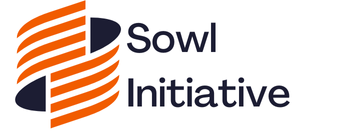Artificial intelligence is reshaping SEO, making it imperative for businesses to adapt. With nearly half of marketers affirming AI’s positive impact on search traffic, understanding AI-driven tools and strategies is vital. This guide explores effective applications, showcases notable tools, and offers actionable insights to enhance your SEO performance. Embrace AI not as a replacement, but as a powerful ally in creating valuable, authoritative content.
Integrating AI in SEO Strategies
The role of artificial intelligence in search engine optimization has grown substantially with its ability to automate tasks and provide unparalleled data-driven insights. By incorporating AI applications, businesses are actively improving SEO with AI, redefining how content is optimized and ranked. For instance, tools utilizing machine learning analyze complex user behaviors and search trends, enabling marketers to focus on personalized search intent and deliver content that aligns precisely with user needs. This approach ensures fewer missed opportunities in keyword targeting and strengthens overall visibility.
In the same genre : Leveraging ai in seo: boost your online visibility today
Transformative Effects on SEO Practices
AI’s integration has restructured traditional SEO strategies, replacing time-intensive, repetitive tasks with streamlined automation. Keyword clustering, backlink analysis, and even meta tag optimization are now more precise, contributing to a better user experience. AI-powered platforms can generate detailed competitor analysis, empowering businesses to stay ahead in dynamic markets. Moreover, generative AI tools like ChatGPT or Jasper enable content creation that’s informed by real-time trends and audience preferences, delivering both speed and engagement-focused outputs.
Benefits of AI in Search Marketing
The benefits of using AI in search marketing extend to advanced analytics for performance optimization. By predicting trends via predictive modeling, AI equips marketers with accurate forecasting for organic traffic growth. Similarly, automated SEO reporting allows teams to track results without manual effort, freeing resources for strategic innovation. From streamlined workflows to tailored content strategies, integrating AI not only saves time but also enhances the effectiveness of SEO campaigns.
Topic to read : Ultimate youtube tactics for uk fitness gear brands to boost audience interaction
AI-Driven Tools for SEO Enhancement
Overview of Leading AI Tools
In the realm of top AI tools for SEO, several platforms stand out for their ability to streamline and optimize various aspects of search engine optimization. Popular free AI-powered SEO tools, such as SE Ranking, offer features like AI Writers, designed for efficient content generation and keyword clustering. BrightEdge’s Autopilot takes automation further by actively monitoring and optimizing content performance. Similarly, SEOpital excels in automating keyword grouping, simplifying efforts for even novice users. These tools cover a range of SEO aspects, enabling businesses to implement cost-effective strategies without sacrificing quality.
Features and Effectiveness of AI SEO Tools
The benefits of AI-driven analytics for website optimization go beyond simple task automation. Tools like Semrush employ advanced algorithms capable of analyzing competitors’ strategies and keyword trends, which provide actionable insights into search rankings. Generative AI tools for content creation, such as Jasper, integrate machine learning to deliver tailored solutions for optimizing meta tags and creating structured data like schema markup. This not only enhances search visibility but also aligns content more precisely with search intent, ultimately improving user engagement and ranking performance.
Case Studies Highlighting Successful AI Tool Implementation
Practical case studies illustrate how these tools redefine SEO workflows. For instance, leveraging AI in keyword research has allowed marketing teams to utilize machine learning for actionable insights—identifying gaps, targeting low-competition keywords, and predicting search trends. Additionally, experiments with tools like Copilot demonstrate improved efficiency in automating seo tasks with ai technologies, enabling teams to shift their focus to strategic content planning. These proofs of concept solidify the value AI brings in maintaining competitive digital footprints.
Best Practices and Future Trends in AI for SEO
Best Practices for Effective AI Implementation in SEO
To best leverage AI in SEO applications, a strategic approach is essential. Start by focusing on AI-driven analytics for website optimization, which can identify underperforming keywords or technical site issues. Combining machine learning strategies in SEO with human oversight ensures that AI-generated insights lead to actionable improvements. Algorithms for optimizing content with AI technology enable content creators to refine meta tags, headings, and body text with precision, supporting higher visibility in search rankings.
Moreover, adopting generative AI tools for content creation allows for streamlining article drafts and clustering relevant keywords. However, quality control is critical—content optimized by AI should align with Google’s E-E-A-T guidelines to maintain credibility. Balance automation with tasks like human-driven edits for tone and context while consistently analyzing AI-generated outputs for accuracy.
Predicting Future Trends of AI in SEO
The future trends of AI in search engine optimization point towards more personalized and predictive capabilities. Tools utilizing AI content generation techniques are increasingly adept at understanding search intent, making content recommendations more user-focused. Emerging advancements in optimizing site structure with AI algorithms will further elevate website usability and crawlability.
Anticipate growth in AI-powered meta tag optimization and improvements for multilingual SEO strategies, which will expand global reach for businesses. As AI integrates deeper into analytics platforms, expect real-time adjustments to stay ahead of algorithm changes.











